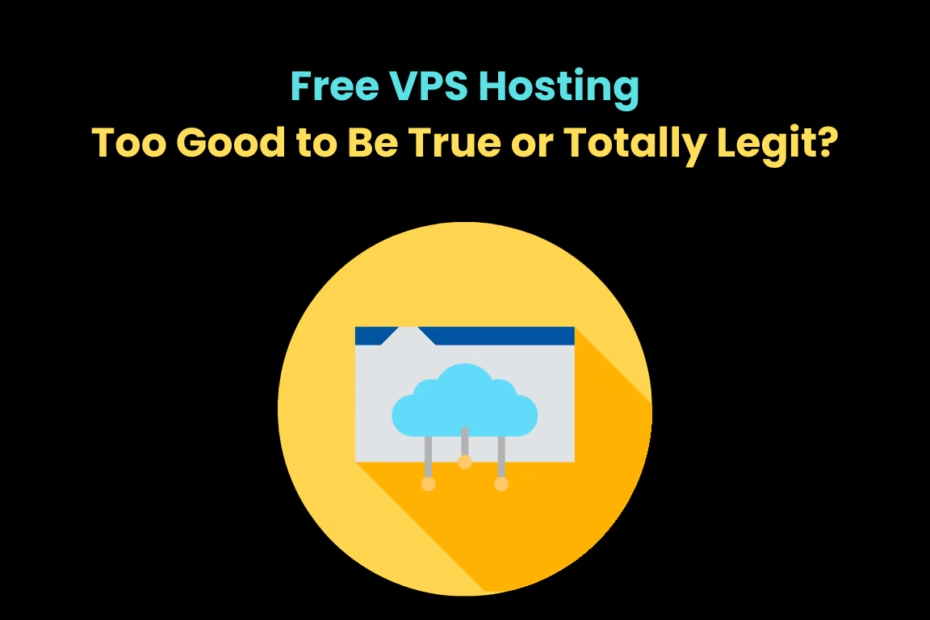If you’ve spent any time browsing tech forums or cloud hosting sites, you’ve probably seen bold claims like “100% Free VPS Hosting!” or “Forever-Free Virtual Server!” Sounds great, right? After all, who wouldn’t want free server resources to run a website, host a bot, or test code? But here’s the thing—while the idea of free VPS hosting is tempting, the reality is a bit more complex.
Free VPS hosting does exist, but not always in the way you might expect. In most cases, it comes with limitations, trade-offs, or time-sensitive conditions. If you’re wondering whether free VPS is truly free or just marketing speak, this article breaks it all down for you.
What Exactly Is VPS Hosting?
Let’s start with the basics. VPS stands for Virtual Private Server—a virtualized server that mimics a dedicated server within a shared hosting environment. It offers more control, customization, and resources than basic shared hosting, making it popular among developers, app testers, and small businesses.
You get root access, the ability to install your own software, and better performance isolation compared to shared plans. That said, VPS is still hosted on a physical server shared with other users, but it’s a major step up in terms of flexibility and power.
Types of “Free” VPS Hosting
So, back to the golden question: does free VPS hosting truly exist? Technically, yes. But there are different types of free VPS hosting you’ll come across, and it’s important to understand what you’re actually getting.
First, there’s the free trial model. Companies like Amazon Web Services (AWS), Google Cloud, and Microsoft Azure offer limited-time free access (usually 12 months or shorter) to VPS-like services. These are great for learning and testing, but once the trial ends, so does the free ride.
Then there are freemium platforms, like Oracle Cloud Free Tier, which offer permanently free access to low-powered virtual machines. These options are genuinely free but come with significant limitations in CPU, memory, and bandwidth.
Lastly, there’s the forever-free from lesser-known providers, which often come with ads, restricted usage, limited support, or even unreliable uptime. These are usually offered as a way to upsell you to paid tiers later.
Trade-Offs of Using Free VPS Hosting
You probably guessed it: if something’s free, there’s a catch. Here are the most common downsides to free VPS hosting:
- Limited resources: Expect minimal RAM (typically under 1GB), small SSD storage (5–10GB), and restricted CPU access.
- Performance throttling: Since you’re on a shared infrastructure, your VPS may be slowed during peak usage times.
- No or minimal support: Most free VPS platforms offer little to no customer service—good luck if your server goes down.
- Security risks: Some free providers don’t invest enough in server hardening or updates, leaving you more exposed to attacks.
- Short-term usage: Many are designed for temporary or educational use, not for hosting production-level applications.
Still, for specific cases like learning Linux, deploying a test app, or hosting a lightweight bot, free VPS can serve a purpose—as long as you know what to expect.
Where to Actually Find Free VPS Options
If you’re looking for legit free VPS solutions, you’ll want to stick with reputable names. Here are a few worth exploring:
- Oracle Cloud Free Tier – Offers two always-free virtual machines with 1/8 OCPU and 1GB RAM.
- Google Cloud Free Tier – One e2-micro instance in select regions, great for learning cloud basics.
- Amazon AWS Free Tier – 750 hours/month of t2.micro or t3.micro instances for 12 months.
- Microsoft Azure Free Account – Free B1S VM for 750 hours/month during the first 30 days.
- Linode or DigitalOcean Trials – These aren’t always free but provide $100–$200 in credit to try out services.
Keep in mind, most of these require credit card verification and will charge you automatically once the trial ends. Always monitor your usage carefully.
Beware of “Too Good to Be True” Offers
Some websites may promise unlimited VPS hosting for free—no strings attached. In most cases, these offers are either incomplete, ad-supported, or outright scams. If you’re asked to provide credit card details without transparency or install software in return for free service, walk away.
That’s why using trusted platforms like EarthWeb can help. They regularly feature verified deals, coupon codes, and hosting reviews to help you find affordable VPS options without getting burned.
When Is Free VPS Hosting Actually Worth It?
If you’re a student, hobbyist, or beginner developer who wants to explore hosting without spending a dime, free VPS options are a great starting point. You can:
- Practice Linux command-line skills
- Host small static websites or personal projects
- Test web applications before launching publicly
- Run bots, cron jobs, or experimental scripts
Just remember to read the fine print. For anything involving production traffic, business data, or critical uptime, you’re better off going with a paid VPS provider.
How to Upgrade Without Paying Full Price
Eventually, you may outgrow free VPS limits. The good news is that you don’t need to jump straight into expensive plans. Hosting providers frequently offer introductory discounts, annual plans, and student deals. A VPS that usually costs $10/month could go as low as $3–5/month during promotions.
Always check reputable deal platforms like EarthWeb before purchasing. They often list limited-time coupons, exclusive bundles, and first-month discounts that can slash your hosting costs significantly.
Read More: Incredible benefits of VPS hosting
Final Thoughts
Free VPS hosting does exist, but it often comes with strings attached—limited resources, trial periods, or trade-offs in support and performance. That said, it can be incredibly useful for learning, experimenting, or running low-resource apps. Just be cautious of unreliable providers and know when it’s time to scale up to a paid plan. With smart deal-hunting on platforms like EarthWeb, you can get the flexibility of VPS hosting without draining your wallet.

